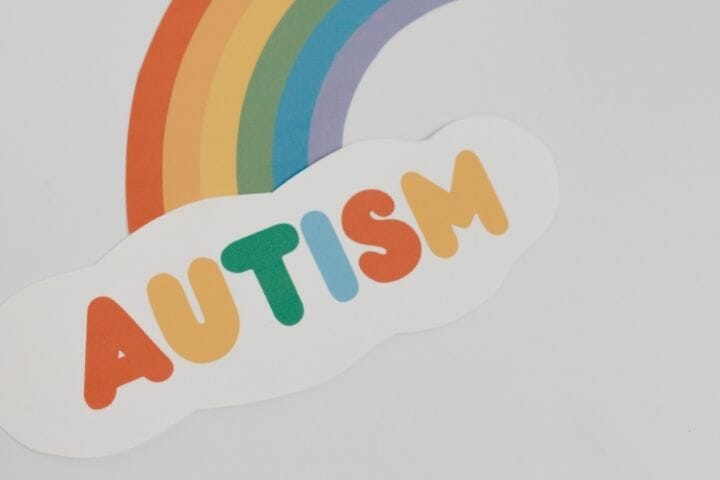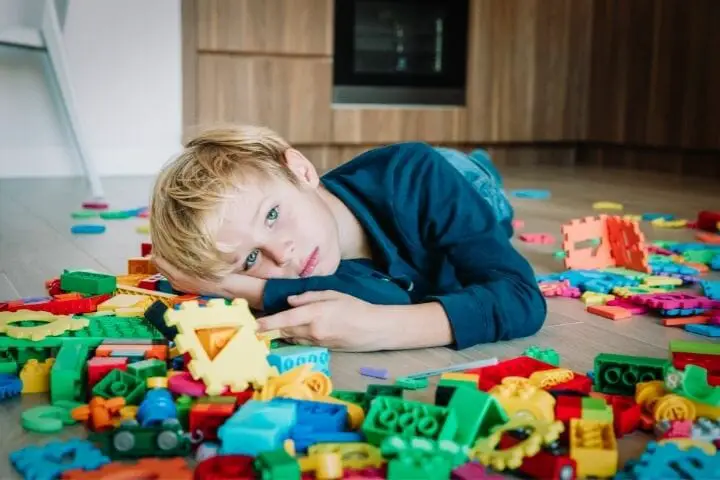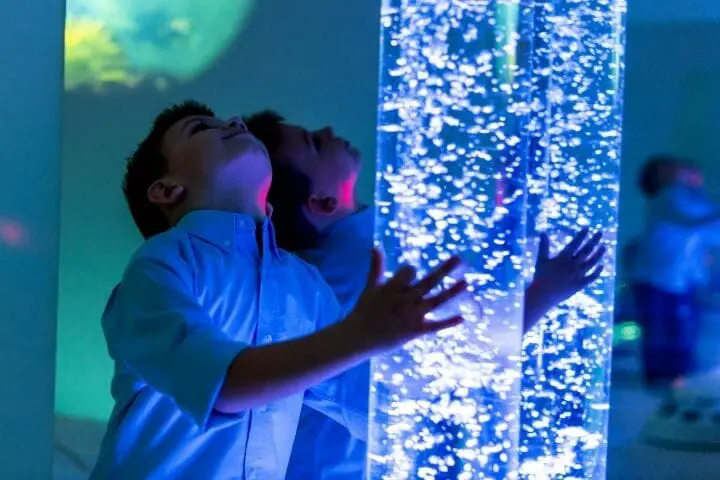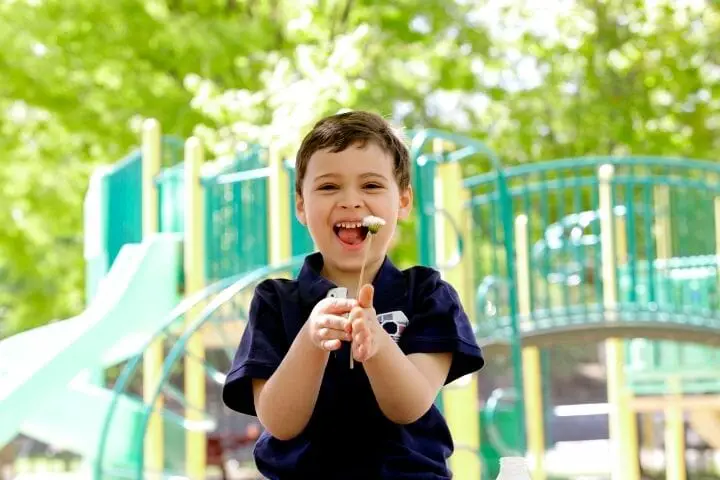We know that therapy helps but will there be a cure for Autism in the future? And does it even need a cure?
Contents
The first step towards curing Autism is to educate oneself about this condition. If you are a parent, relative, sibling, friend, or someone who has this condition, then the chances are that you must have tried all the treatments, medication, and therapies that claim to have success with it. However, there isn’t a “magic pill” cure available for Autism in modern science.
But the hope remains.
This hope is the driving force for researchers to jump head-first to find a cure for this neurodevelopmental condition. However, there hasn’t been a treatment that has successfully cured Autism till today, and recent thinking has moved away from finding a cure.
Instead, modern science is focusing on improving the lives of those who have this condition, and how they can cope with their symptoms to lead a normal life. But will there be a cure for Autism in the future? Let’s look at all that is happening in this field.
What is Autism?
Autism spectrum disorder, commonly known as Autism, is a neurodevelopmental (a disorder related to the development of the nervous system) condition or disorder that affects behavior and communication problems in the person. In this condition, people behave, speak, and act differently from their peers; however, every person has different symptoms and patterns.

Symptoms of Autism
The signs of Autism appear in early childhood, generally around 12 to 24 months. However, it is possible that the diagnosis for the same may not take place for many years since the symptoms can be quite subtle and different in every person.
Even so, some of the typical symptoms of Autism have been listed below –
- Lack of or slow response to their caregivers
- Lack of eye contact
- Indifference to family, parents and caregivers
- Difficulty learning something new
- Trouble adjusting in social situations
- Trouble communicating their thoughts
- Resistance towards cuddling or holding
- Lack of facial expression
- Doesn’t understand normal directions or questions
- Doesn’t express emotions/completely unaware of other people’s emotions
- Passive-aggressive or even disruptive
- Repetitive patterns or behaviors
- The problem is maintaining coordination in the body. Thus, they are often clumsy.
- Fixating on an activity or object with hyperfocus
- Unusual sensitivity to light, sound, or touch
- Have specific food preferences
- Have specific routines and get disturbed when it’s changed for some reason
- Performing certain movements frequently such as hand-flapping, headbanging, spinning, etc.
When to seek help?
An autistic child starts showing symptoms of the condition around two years of age. However, it is different for everyone, and not all of them follow the same timeline. Many symptoms remain hidden for a long time.
As parents, you will notice their delayed development, and if you have any doubt about your child having Autism, it would be a good time to consult your doctor so that the recovery period can start soon.
You can book a doctor’s appointment for your child if they show any of the symptoms mentioned above. Your doctor may or may not run some cognitive and language-based tests on them if they
- Don’t speak a single word clearly by 16 months
- Don’t show any language or social skills
- Doesn’t babble by 12 months
- Doesn’t respond with a smile or any happy emotion by six months
- Doesn’t show any noticeable facial expressions for nine months, etc.
Is Autism Curable?
“There’s no cure for autism. Anybody who tells you otherwise is a liar”. These are the words of Acevedo, a fifth-grade teacher in LA who is a single parent to autistic children. If we are being honest, there is certainly no cure for Autism yet, and we can assure you that there is no way to prevent this condition. Many signs related to Autism remain hidden and cannot come out until the child is 3-4 years of age and maybe later.
The reason is that Autism isn’t a disease at all! Autism is simply a condition that stems from genes, environment, complicated triggers, and more and finding the cues related to them requires decades of work and research – this might include the patient’s lifetime. Thus, recovery from the same is a dream so far.
Even though there is currently no cure for Autism, different therapies help people live their lives almost as anyone else, and with a lot of success. Some of the most famous and successful personalities were autistic, such as Albert Einstein, Anthony Hopkins, Charles Darwin, and Tim Burton – so there is certainly hope, and always has been for a normal life after autism.
Focus Has Shifted To Early Detection and Mitigation
The experts in the field reckon that early diagnosis backed by early therapy shows tremendous outcomes in autistic people. “The state’s early intervention teams should assess younger children with ASD . These teams are often known as Individualized Family Service Plan (IFSP),” explains Dr Ashanti W. Woods of Mercy Medical Centre, Baltimore.
The goal of therapy is to minimize the anxiety in social settings and cognitive behavior and help the toddlers (or at whatever age they seek therapy) communicate better and freely. It seems that the only road to recovery is therapy right now.
The same goals are also met through Individualized Education Plans or IEP for children who attend school to help them communicate and socialize better. Apart from this, the approach of applied behavior analysis (ABA) is also one way to develop positive behavior and improve social and communication skills amongst the children.
Several other forms of therapies and treatments are available for Autism, including social skills training, occupational therapy, and sensory integration therapy.
Autism also gives rise to or comes with other mental health conditions such as Attention-Deficit-Hyperactivity- Disorder (ADHD), Obsessive-Compulsive Disorder (OCD), depression, Oppositional Defiance Disorder (ODD), etc.
Since these conditions are frequently seen in an autistic person, it is recommended to consult a good medical professional and get on medicines to improve quicker and feel better.

Some Medicines Have Shown Promise
According to a study published in January 2020, the brain’s chemical messengers in children treated through medicines were enhanced compared to those who didn’t take the treatment. In this study, children aged 3 to 6 years were split into two groups. The first group got 0.5 mg of bumetanide two times a day for the next three months, whereas the others were kept as a control group.
The children were assessed on the Childhood Autism Rating Scale, and via brain scans, it was concluded that the children treated with medication showed an increase in two main brain chemicals that are lacking in autistic children. However, the group with no medication showed no such improvement and thus, the conclusion was that these medicines helped. However, this study was considered far too small to draw general conclusions.
The takeaway from this study is that the medicine may or may not work on your child, but there is a possibility that they can improve the overall situation. Medicines can also be quite complex in Autism. For example, in 2009, aripiprazole became a part of autism medication. Later in 2020, researchers claimed that the medicine is linked to various side effects, including weight gain, behavior problems, movement problems, body pains, etc.
Thus, it is important to make sure that the medicine your child is taking or about to take has nothing to do with any possible side effects that may further damage their health.
Why Don’t We Hear More About Cases of Significant Recovery?
With the above therapies and medicinal inputs in place, almost 14% of the children that get Early Intervention make dramatic progress, some even recover to a large extent.
Parental Discrimination
Parents keep the label a secret, if they can, so their children can lead a discrimination-free life. These parents move on, try to recover themselves, and create a new life for their family. They cannot be public about their past and support autism efforts at the cost to their own kids.
Parents often do not want their typical kids to play with children with special needs. It is not a concern of mine if people get defensive by this fact. It is true. After all, what has happened to this generation of children is still being examined, and in no way the dust has settled.
It’s a big battleground – from the pharmaceutical companies to the government, to big offenders of environmental contamination, all wrapped up for us in a big bow. No one wants to raise their hand and be accountable. We are still in the Cover Your Ass and Let’s Run and Hide phase of this pandemic.
We all discriminate. Let’s face it, we all want our kids to play with the perfect friend. A mild temperament, similar or higher developmental level, good-natured, doesn’t hit or bite, and has a nice mom. As many as two out of five kids with ASD face bullying.
We don’t want our kids to pick up bad habits. We want them to have a positive fun experience. Parents discourage their kids from playing with the ‘wrong kids’, those that may not look typical, wear different clothes, come from a different socioeconomic background, have strange parents, or do poorly in school.
With little information and TV movies to go on, these parents are in the dark about Autism, how vastly different each and every kid with the same diagnosis presents.
They are unaware of the fact that this is the new generation of typical peers – 14% of the kids in elementary and preschool classrooms in America have some developmental issue. Pull-outs galore for reading, writing, and other learning challenges are the norm. Having an ASD is now part of the norm.

All parents know is that they want to protect their kids. They want the best possible learning experience in school. They want to make sure they can learn without distractions in school. They can’t teach tolerance because they themselves are ignorant.
They don’t know what to do with an Autistic kid at a birthday party, on a soccer team, or at their house for a play date. It is awkward, uncomfortable. How should they act? What do you say to the mom?
They don’t want their kid to be affected in a negative way by an Autistic kid. Often, instinct and fear guide us, parents, myself included. Sometimes that’s a good thing. For typical parents, ignorance and fear make them choose the easy route – don’t call, don’t invite, avoid.
Each new school year parents are faced with more and more aides in classrooms with no explanation. Parents lack knowledge about this new generation. The new normal is here to stay.
There is no leadership. No one sets the tone. Sadly the school district, PTA’s, and other organizations are not straightforward. It’s discussed in small groups of parents off-the-record.
Economics plays a big role when districts try to accommodate special kids’ needs at their various schools. They must look at their population and their pool of therapists, equipment, space, etc, and lay it all out like a big puzzle.
One school may have a lot more special needs kids because it’s newer and has the space for therapy. With no explanation, parents grumble and ask “Why does my kid get stuck with 3 special needs kids and their aides in my classroom? And they aren’t even in my district!” they exclaim. This adds fuel to the discrimination fire.
Parents have no idea of the complexity in fulfilling a child’s modified education program – while minimizing costs at the same time. Bus routes, sibling separation, maximizing a child’s hours at school. Parents don’t realize that when they do see a special. ed child in their classroom, one of two things have occurred:
- The child has very significant issues that the school could not avoid addressing.
- The parents had to sue or fight like hell to get those services.
Because of the factors mentioned, schools don’t automatically hand out a beautiful program on a silver platter. They do what is best economically first.

Therapists Want To Play Safe
Therapists are reluctant to share stories about cases where the kids make it all the way through and are blessed with a “normal” life. They are even reluctant to share huge gains. If parents have this knowledge, they feel the parents would expect this outcome.
They want the parents to be realistic and not give false hope. Don’t you think the benefits of sharing outweigh the cases where you leave the parents feeling depressed or inadequate?
Filled with unrealistic expectations? I certainly do. And as of today, I can attest to this personally by comparing positive comments versus negative ones I get in my Inbox.
I resent the fact that providers choose to make life a bit easier on themselves, sacrificing hope for certain families. Isn’t it the parents’ responsibility, not individual providers or schools to filter ASD info? A friend recently shared with me “it’s like a cancer doctor not telling a patient there is hope for recovery simply because not all patients do recover.”
Some providers don’t believe there is ever an end to therapy. Therefore, they do not believe in recovery because it goes against the philosophy behind the intervention they practice. Also, the new technology hasn’t been played out in great numbers into adolescence and adulthood.
If it’s not published in a journal with science to back it up, it doesn’t exist to them. And we all know that answers don’t begin in a journal. How many times have you read a piece of research, and ask yourselves why in the heck did they put money into that? The general public already knew that answer!
Research, technology, and learning grows each day. Parents are the managers. From home- life to the biological piece to the therapeutic piece. No one else is in that position. Any parent would love to share this role – impossible.
Every week parents tell me how my story inspires them. “Is it worth it? All this work? All this money? This sacrifice? The confrontation with the school district?
What if I said no? First, it would be a lie. Second, there may be many parents that wouldn’t react by acting. Moving their obstacles out of the way to really tackle the disabling parts of ASD. Maybe they would not be as committed. Give up. Thinking that it’s a fight they can never win is dangerous.
Each kid can win no matter how close they get to recovery. Significance, age, or other factors should not be an issue towards maximizing the potential of your child, leaving no stone unturned.

What Should We Do?
The Autism community must press to provide training to schools. The Autism community must press for articles in general magazines about the enormous differences within the spectrum. How about an article sharing the day in the life of a mainstreamed child, with viewpoints from other parents and their peers?
Don’t get me wrong, I’m happy about any Autism press. However, providing stories only about the stereotype increases awareness about Autism but doesn’t provide any new information about the profile of our children today and how that impacts our childrens’ school experience.
We need education. Nobody is facilitating relationships between typical and ASD parents. Although Autism and Aspergers are trendy these days in the media, the subject is taboo in real life. We are not utilizing the information that is so accessible for all to see, as a parent, a neighbor, a teacher, a school administrator. Early intervention funding will get a real fighting chance at passing on all levels – federal, state, and local if we raise awareness.
The Future of Autism Research
The research related to Autism is ongoing, and experts have attained some great results from many studies. We feel obliged to share some of them in this article for your perusal. While there aren’t many fruitful conclusions, the next five years can be crucial for the recovery of autistic people due to many ongoing studies.

Research on genetics
It is a well-known fact that Autism is linked to your genes. However, researchers want to learn about the specific gene that leads to the development of this condition. For this reason, many genetic studies and research have taken place in the autism market.
One of these research is being performed by the SPARK for Autism as a study on people with the condition, who were asked to submit their saliva for the team to look for similarities and differences amongst them.
About 23,000 people participated in this study in the year 2020. However, researchers want about 50,000 people in this ongoing research to help those with Autism through some modification in the genes.
For example,take myelin; a thick and fatty substance that sheathes neurons to keep messages from jumping from one place to another. The formation of myelin is different in most autistic people.
So, people with certain genetic variations do not produce or produce less myelin, which, if detected before pregnancy, might cure the baby before birth by making certain alterations. The genetics research is focusing on this and other areas to help yet-to-be-born children whose parents show the genetic variation.

Research on autism and gut microbiome
Many studies have claimed that autism and gut biome might be related in a way that links to the imbalances in the brain that leads to this condition. It is also being researched if bringing a balance in the gut microbiome can lead to correction in the condition or at least improve the social and language issues of an autistic person.
A 2017 study published in Microbiome, a journal, learned that microbiota transfer therapy (MTT) might improve gut microbiota and autistic symptoms in people suffering from this condition. It was observed that those who received the therapy experienced lesser gastrointestinal issues and showed continued improvement in their autistic symptoms after two years of observation.
What about neurological and contributing factors?
As per a study published in Nature Neuroscience, it was observed that a gene variant-based in cells protecting myelin, the sheath that protects the nerve cells in the brain, malfunctions in the case of Autism. This malfunction often leads to insufficient production of myelin and impairs the development of the brain, also disrupting the nerve communication in the brain.
There is another ongoing study, which is collaborated amongst six sites (these sites are a part of Autism and Developmental Disabilities Research) in the US, to learn about the factors linked with Autism. It is known as the Study to Explore Early Development, and it intensely focuses on children aged between 2 to 5 years of age.
The goals of this study are to learn about the factors that can potentially develop Autism in a person, observe the health conditions that are likely to occur with Autism, and differentiate between physical and behavioral traits of autistic children. The research has also been published in a popular journal named Epidemiology. The research work is currently ongoing.
Wrapping up
Even though there is no cure for Autism, perhaps there is no need for it either! Recent thinking has moved to early detection and ensuring that these children are given the tools to function in a normal society.

However, we also need to recognize that society is still not accepting of these children, and instead of fixating on the cure, perhaps it is time that we started moving towards education and acceptance in society.
At the same time, research and studies on the same are ongoing. With effort, time and dedication, there might come a day when we might have a genetic or otherwise solution that helps mitigate some of the symptoms.
Sometimes, it’s right there, and the minute we see it, we know we have reached the destination. However, until then, we need to accept the condition of anyone who is autistic around us because it is not easy to live and feel differently from others.
